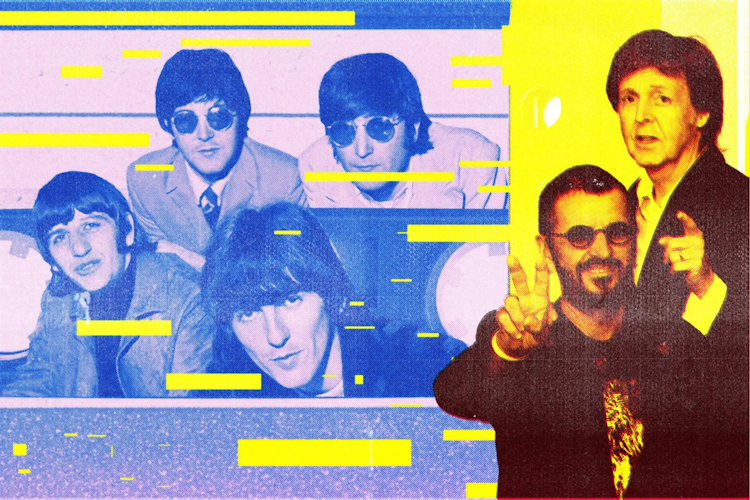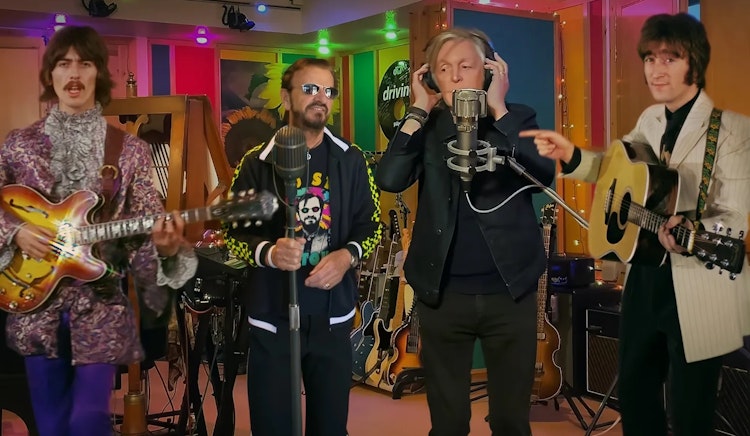Today marks the release of the first “new” song by the Beatles since 1995. “Now and Then” is available on streaming services (with an Atmos mix where supported), and the story behind the song’s production is one that’s drawn a lot of interest from fans of the iconic rock band. Paul McCartney and Ringo Starr turned to breakthrough technology and machine learning to piece together a finished track from an old lo-fi John Lennon recording.
The Beatles first attempted to make something from Lennon’s “Now and Then” demo in the mid-‘90s, when McCartney, George Harrison, and Starr reunited to work on “new” songs that would appear on the group’s Anthology albums. They successfully completed “Free as a Bird” and “Real Love,” layering full-band arrangements on top of Lennon’s demos.
But progress on “Now and Then” eventually stalled out — largely due to technical issues that made the original tape tricky to work with. “In John’s demo tape, the piano was a little hard to hear. And in those days, of course, we didn’t have the technology to do the separation,” McCartney said in a new mini-documentary about the song. “Every time we wanted a little bit more of John’s voice, this piano came through and clouded the picture.”
Ultimately, the trio session involving McCartney, Harrison, and Starr ended without “Now and Then” ever being finished. “I think we kind of ran out of steam a bit, and time. And it was like, ‘I don’t know. Maybe we’ll leave this one.’” The song “just kind of languished in a cupboard,” McCartney said. Harrison died in 2001, which cast further doubt on the song ever seeing the light of day. “It took almost a quarter of a century for us to wait until the right moment to tackle ‘Now and Then’ again,” McCartney said.
The pivotal moment came earlier this decade, when director Peter Jackson was working on his comprehensive Get Back documentary for Disney Plus. His team developed a technology that allowed them to take practically any piece of music (even ancient demos) and “split all the different components into separate tracks based on machine learning.” McCartney and Starr realized this was their opportunity to go back and give “Now and Then” the ending it deserved. “Now we could mix it and make a proper record of it,” McCartney said. He recorded a bass track, Starr added drums, and producer Giles Martin came up with a string arrangement “like Giles’ dad would’ve done in the old days.”
The song’s documentary doesn’t offer much detail on what you’ll hear from Harrison’s past recordings on the completed track. It’s been said he wasn’t a huge fan of the unfinished Lennon song to begin with. But McCartney says they kept his parts from the Anthology sessions, and McCartney himself played a slide guitar solo in Harrison’s style.
Despite some consternation from fans, everyone involved in the project (and from the estates of nonliving members) seems fully comfortable with how “Now and Then” came together.
“My dad would’ve loved that, because he was never shy to experiment with recording technology. I think it’s really beautiful,” said Sean Ono Lennon. McCartney echoed that sentiment. “To still be working on Beatles music in 2023... wow. We’re actually messing around with state-of-the-art technology, which is something the Beatles would’ve been very interested in. ‘Now and Then,’ it’s probably like the last Beatles song. And we’ve all played on it, so it is a genuine Beatle recording.”
Even if this is the last hurrah for The Beatles, it’s awfully exciting when you think about the countless recordings — many that predate the Fab Four — that this track separation technology could help restore and give new life to in the years to come.






